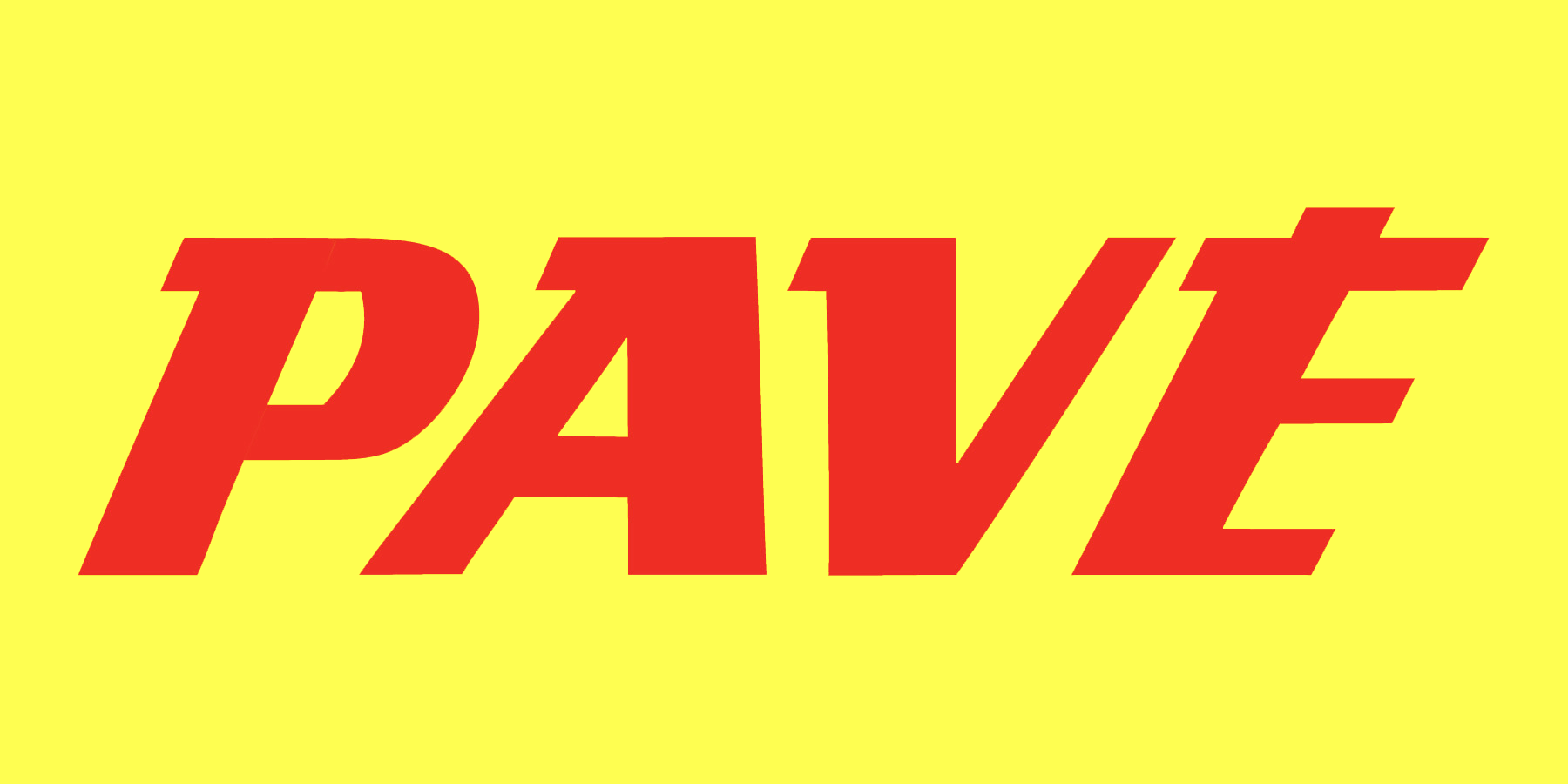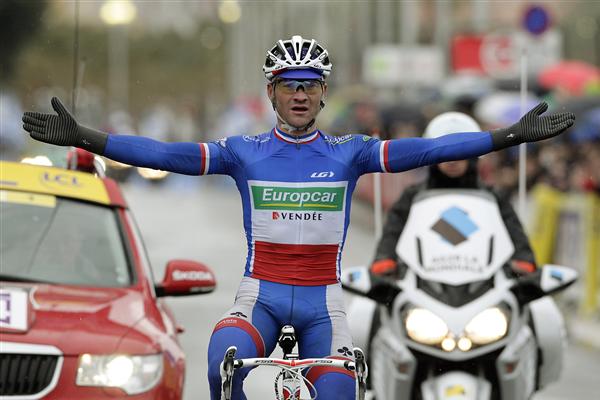If you started to follow professional cycling in the post-Festina era, there are a few truthisms that are universally-accepted:
- Cipo is the manliest man alive. His caveman-like exterior hides only a caveman-like mind and intelligence.
- Ullrich shall always be out of shape up to and including the first lumpy stage of le Tour.
- French cyclists can only win either regional French races or following a suicidal solo break (see Jackie Durand, Richard Virenque, et al.).
For years we laughed about Christophe Moreau’s pitiful goal of being the highest-ranked French GC rider in the TdF. That is, until the Andreu-Vaughters chat transcript revealed that he may have been the only clean rider anywhere in the top 20 of the GC. With these truthisms, even Jalabert’s performances seem a very calculated “action rapide” with only one single arrow in the quiver. As if anybody else had paid attention to what exactly he was doing, or if anybody else cared, his wins would have evaporated. Tommy V.’s 2004 tragi-drama was dismissed by many as a one-off affair, as were Chavanel’s repeated attempts to win just one stage in the name of the Fifth Republic!
Yet today, a breakaway seems strange without Tommy V. driving it in the last 15 km, and any respectable spring classic seems lonely without Chavanel ever-ready to pounce from the front of the peloton. Add to this Steve Chainel, Yoann Offredo, and many others, and it seems that this Rise of the French is more than just a change of generation. What is going on and what does it take for them to be winners once again?
1. Dare to win. Even in the depths of the malaise of French cycling, some teams such as Madiot’s FDJ dared to put their cards on the table at once and genuinely wanted to win without excessive flanking. Even if they had to rely on a Franco-Belge named Gilbert, they put force on the front and consistently tried. They chase gamely, and blocked, and raced with coherent techniques.
Contrast this, for example, with Brioche de Boulanger / Bouygues Telecom’s typical approach of randomly throwing a few riders into breakaways with the hope that they might finish in the top ten. Or, Cofidis’ notoriously mercenary approach to racing.
Even if FDJ’s dedication didn’t pay off as much as it did other non-French teams, having a cohesive squad is a huge asset that pays off in the long term. It is hard to see Cofidis mounting any serious chase, but FDJ is very well-drilled and willing to do so. Now all they need is a star rider, which they may have in Offredo and Fedrigo. Can Cofidis buy itself “team fighting spirit”?
2. Dare to recruit. All sports must compete with all other sports for the best athletes. The Festina Affair must have been a blow to the recruiting efforts of French cycling. Perhaps this can explain the apparent gap in the 25-28 age bracket, between the Chavanel generation and the Offredo generation.
3. Dare to invest. One thing that BdB/BBox and Cofidis did right, was to invest in riders. BdB/BBox hung on to both Voeckler and Chavanel for along time. And Cofidis periodically brings in an entire compagnie des etrangeres, starting the Armstrong cabal in ’96 (Armstrong, Andreu, Livingston, et al.), and later on the infamous VDB squad and the occasional anglo. Of course, this approach tend to lead to in-team factions if not managed properly, such as VDB-Millar’s “non-communication” for several seasons. The good news is that the sponsors themselves appear to be happy with the investment (excepting perhaps the aptly named Monsieur Francois Migraine of the Cofidis group).
4. Dare to travel. Chavanel showed that moving to a large foreign squad does not mean complete loss of one’s freedom as a rider, but rather he used the resources to be able to target races outside the traditional focus on the team, such as Paris-Nice. And in the absence of Boonen, why not stage wins in le Tour itself? This model has been hard to replicate, however, with very few successful French riders outside of French teams. Voeckler has stayed around under Bernaudeau’s umbrella for all his pro career and that’s unlikely to change.
5. Dare to try elsewhere, and to lose. There is something to be said about having a winning mentality, and France is still blessed with many local races at all levels. Basically try to get used to winning even in smaller races. To the casual fan Voeckler may appear to have done nothing since his epic 2004 TdF defense of the maillot jaune, but the real fans know that he won the 2004 Bordeaux-Cauderan, 2005 GP Dijon, 2007 GP Plouay, and a whole bunch of other races. He’s used to WINNING.
Even the evergreen Chavanel started winning smaller races as far back as 2002 with Brioche de Boulanger, including standout performances at the Trophee des Grimpeurs, Quatre Jours de Dunkerque (which has just been changed from 5 days to 6), and the Tour du Haut Var.
Offredo, despite his youth, podiumed in 3 races his first year, 7 races his second year, and after an off year in 2008 is now a regular podium finisher in respectable races. Compared to Voeckler, his finishing rank is not nearly as spread, but we know that Tommy takes more risk than Yoann does. If anything else, Offredo’s trajectory makes for an interesting career study case that he is having a slower rate of win as his race schedule is increased to include more competitive races.
Of course, name recognition is important, and the participation of Voeckler, Chavanel, the Feillu’s, et al. help re-introduce one-day and smaller stage races to the French public, which in turn improves the legitimacy of these races. It is no wonder that Belgian riders and teams hold de Ronde and Roubaix as the holy duo, as the Belgian public holds these races with as much reverence if not even more.
6. Dare to disappoint the public. Offredo, Chainel, and many other talented youngsters show that they are perfectly willing to focus in races other than the Tour. Turning back the clock, Jalabert’s renaissance owed much to his change of focus from being a GC rider to a KOM specialist and aggressive one-day classics rider.
A great comparison can be made to the career of Patrice Halgand, who was touted to be the French GC hope in the 2000-2003 era. For one reason or another, he went from being a winning rider to a winless one, all while maintaining his fame of having been a top-10 TdF GC finisher in 2001.
In closing, I believe that today is a very exciting time for French Cycling not only to rise again, but also to re-define itself. The key is that it has to fully leverage its fortunes and natural resources, namely its rich races–large and small, and renewed interest in pro cycling as a career.
Share your comments below.


4 Responses to The French Shall Rise Again